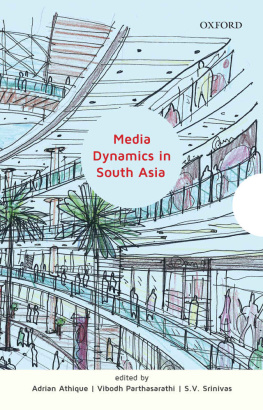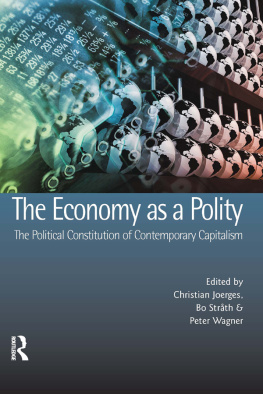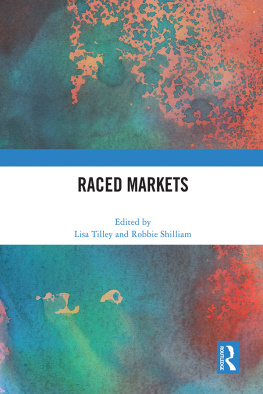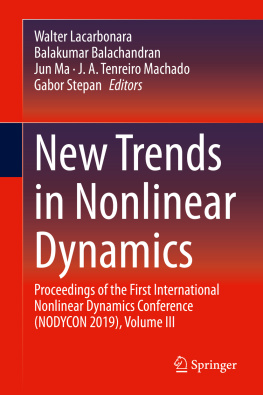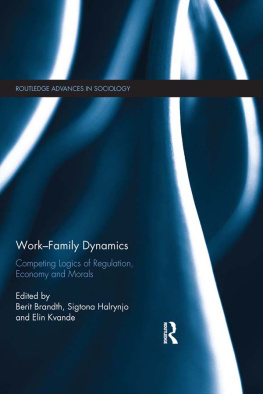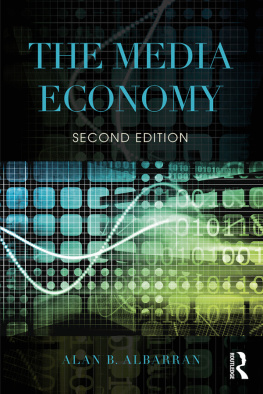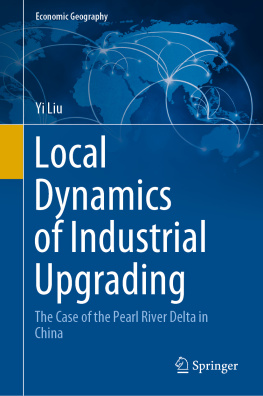Contents
Adrian Athique
Adrian Athique
Ashish Rajadhyaksha
Brian Stoddart
Douglas Hill and Adrian Athique
Vibodh Parthasarathi
Gregory D. Booth
Aswin Punathambekar
Vibodh Parthasarathi
S.V. Srinivas
S.V. Srinivas
Ratnakar Tripathy
Pradip Thomas
Vibodh Parthasarathi
Adrian Athique
Sathya Prakash Elavarthi
Lawrence Liang
Shishir K. Jha and Niraj Mankad
Vibodh Parthasarathi
Scott Fitzgerald
Babu P. Remesh
Sunitha Chitrapu
Adrian Athique
Adrian Athique and Douglas Hill
Rashmi M.
Tania Lewis
media dynamics in south asia
SERIES EDITORS
Adrian Athique, Vibodh Parthasarathi, and S.V. Srinivas
The centrality of mediation to social, economic, and political processes in South Asia has become increasingly evident in recent years. The media have become a substantial economic sector, with considerable strategic and symbolic importance for career decisions and for the fortunes of South Asia in the global economy. The intense mediation of the political arena has seen a wide range of media formats taking on the role of actors in the day-to-day operation of the democratic process and in the conduct of international relations. The use of media technologies for enabling the interlocking fields of education, employment, and consumption makes their functions and potentials a necessary concern for the social sciences. Beyond their utility, the expressive content of the media requires a deep engagement with cultural reproduction across the region.
Media Dynamics in South Asia curates an interdisciplinary approach that addresses media studies as a field of interlocking interests in politics, economics, culture, technology, gender, and education. Our imperative for expanding the breadth of media studies in this way serves the larger task of uncovering the various relationships, transactions, and interactions that characterize social change as a dynamic process. At the same time, our broad sociological approach to different aspects of the media requires us to account in depth for the conditions, concerns, and challenges specific to the region. It is no longer sufficient to maintain a paradigm for media analysis conceived elsewhere and transplanted, often uncomfortably, to various locations in the subcontinent. Rather, the presence of a large, sophisticated, and fast-moving media environment in South Asia promises sufficient depth to support original and innovative research approaches and the production of a future teaching curriculum grounded in the regional experience. The series seeks to play a critical role in establishing the necessary resources for supporting the growth of media studies in South Asia.
Adrian Athique is associate professor in cultural studies at the Institute for Advanced Studies in the Humanities, The University of Queensland, Brisbane, Australia.
Vibodh Parthasarathi is associate professor at the Centre for Culture, Media and Governance, Jamia Millia Islamia, New Delhi, India.
S.V. Srinivas is professor at the School of Liberal Studies, Azim Premji University, Bengaluru, India.
editorial board
Gregory D. Booth, University of Auckland, New Zealand
Paula Chakravartty, New York University, USA
William Crawley, Institute of Commonwealth Studies, UK
Biswajit Das, Jamia Millia Islamia, India
Stephen Hughes, School of Oriental and African Studies, UK
Douglas Hill, University of Otago, New Zealand
M. Madhava Prasad, English and Foreign Languages University, India
Aswin Punathambekar, University of Michigan, USA
Din Mohamed Rahman, University of Liberal Arts, Bangladesh
Ashish Rajadhyaksha, Centre for the Study of Culture and Society, India
Brian Stoddart, University of Melbourne, Australia
Pradip Thomas, University of Queensland, Australia
Ravi Vasudevan, Centre for the Study of Developing Societies, India
Chris Verschooten, KU Leuven, Belgium
the indian media economy
Volume I
Industrial Dynamics and Cultural Adaptation
edited by
Adrian Athique,
Vibodh Parthasarathi,
and
S.V. Srinivas


Oxford University Press is a department of the University of Oxford.
It furthers the Universitys objective of excellence in research, scholarship,
and education by publishing worldwide. Oxford is a registered trademark of
Oxford University Press in the UK and in certain other countries.
Published in India by
Oxford University Press
2/11 Ground Floor, Ansari Road, Daryaganj, New Delhi 110 002, India
Oxford University Press 2018
The moral rights of the authors have been asserted.
First Edition published in 2018
All rights reserved. No part of this publication may be reproduced, stored in
a retrieval system, or transmitted, in any form or by any means, without the
prior permission in writing of Oxford University Press, or as expressly permitted
by law, by licence, or under terms agreed with the appropriate reprographics
rights organization. Enquiries concerning reproduction outside the scope of the
above should be sent to the Rights Department, Oxford University Press, at the
address above.
You must not circulate this work in any other form
and you must impose this same condition on any acquirer
ISBN-13 (print edition): 978-0-19-948263-4
ISBN-10 (print edition): 0-19-948263-2
ISBN-13 (eBook): 978-0-19-909178-2
ISBN-10 (eBook): 0-19-909178-1
Typeset in Adobe Jenson Pro 10.5/13 by
Tranistics Data Technologies, Kolkata 700 091
Printed in India by Replika Press Pvt. Ltd
There is a growing body of critical and institutionalist scholars who have finally begun to take the economics of media and communications as serious objects of analysis. This two volume encyclopedia brings together the crme de la crme of this burgeoning generation of scholars in a systematic interrogation of the media economy in this enormously complex and fast changing society.
Dwayne Winseck, Professor, School of Journalism and Communication, Carleton University, Canada
A pioneering and intellectually stimulating volume, this collection of essays marks the beginning of a systematic analysis of the emerging media economy of India and makes a distinctive and very valuable addition to the literature on political economy of global media. Highly recommended.
Daya Thussu, Professor, International Communication, University of Westminster, UK
Contents
Adrian Athique
Adrian Athique
Ashish Rajadhyaksha
Brian Stoddart
Douglas Hill and Adrian Athique
Vibodh Parthasarathi
Next page
